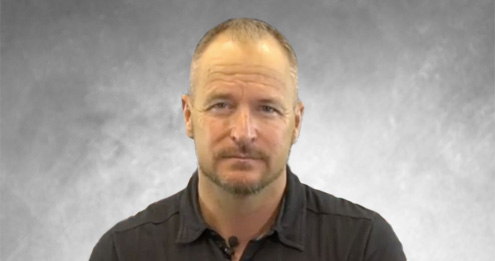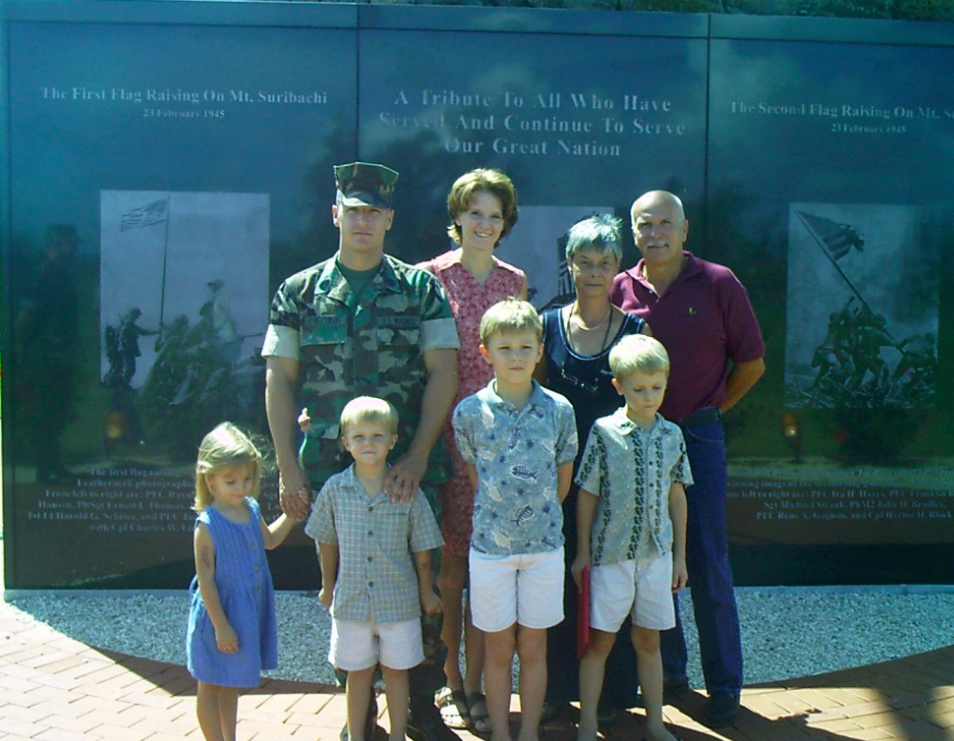- Veteran
- Cybersecurity
- Marines
Certification Spotlight
Credentialing success from the Service community
How certification impacted the life of a retired Marine Master Sergeant
Bill Rybczynski, Retired Marine
Industry credentials have the power to impact careers both while serving as well as after separation. In partnership with the Department of Defense and various academic institutions, Pearson VUE delivers credentials that help the Service community earn recognition for their experiences and expertise. Retired Master Sergeant William (Bill) Rybczynski, USMC, speaks about his credentialing experiences during his 20 years in the Marines and how they prepared him for success in the civilian sector.

William (Bill) Rybczynski, Retired Marine
What did you do in the military?
I started out in the infantry and then, after Desert Storm, spent time as a Drill Instructor and Senior Drill Instructor at Parris Island. After that, I moved to the 4066 MOS, where I served at CSSG-23 at the Marine Corps Air Station Beaufort in South Carolina. From Beaufort, I was stationed at the Marine Corps Communications and Electronics School in Quantico, Virginia, where I taught the Small Systems Course, and then I helped move the school to 29 Palms, California. While in 29 Palms, I continued to teach the Small Systems Course and began to aggressively pursue professional certification and even taught night classes for a private IT school in Palm Springs, California.
From 29 Palms, I transitioned to Marine Forces Pacific (MARFORPAC), Camp Smith, Hawaii, where I served as the Information System Security Manager and continued to pursue professional certification. While serving at MARFORPAC, I was selected as one of the first 0689 Information Assurance Technicians. My last tour of duty was at Headquarters Marine Corps C4 where I served as the Senior Information Assurance Chief directly supporting Dr. Letteer who is the Chief, Cybersecurity Division, and the designated Marine Corps Authorizing Official.
Certification helped to establish my credibility and expertise during my time in the Marine Corps.
What role did certification play in your military experience?
Certification helped to establish my credibility and expertise during my time in the Marine Corps and, I believe, successfully contributed to my selection as one of the first 0689 Information Assurance Technicians in the Marine Corps.
What you do now?
Currently, I am the Senior Vice President of the Cybersecurity Division of RPI Group, Inc., which is headquartered in Fredericksburg, Virginia. This division serves both government and commercial clients by performing risk and security assessments, evaluating business processes to develop strategic recommendations and providing training to personnel as well as providing secure Industrial Control System and Operational Technology security solutions.

Bill R. with family in Hawaii upon promotion to MSGT
Are you currently certified?
I am still professionally certified as an (ISC)² CISSP and ISACA CISM.
Did you use any study or training materials?
To prepare for my certifications, I used a number of different resources, including classroom training, self-paced training and practice tests.
How has certification played a role in your professional journey while serving, during transition and after separation?
I believe that my ongoing pursuit of professional certification and a strong work ethic directly contributed to my success while on active duty. Because of the number of certifications I held during my military career, I was able to understand the challenges students faced. Because of that, when I retired, I worked with a private training company. The continual study for earning the Continuing Education Credits/Units required for my current certifications helps me to ensure my knowledge and skills stay current in today’s ever-changing cyber environment.
Certification proves they have the skills to support their mission and, more importantly, imparts to them the skills to do their jobs effectively.
Do you have any recommendations or words of advice for our test centers and trainers regarding administering certifications in the military?
Trainers should understand that the students who come to the classroom are focused first on their daily mission, which is to support the Warfighter. Trainers should help them understand how the training they are providing is more than just a mandate to earn a certification. Certification proves they have the skills to support their mission and, more importantly, imparts to them the skills to do their jobs effectively. Certification itself is not the end goal. Instead, it’s the application of what the student has learned that’s truly valuable and that ultimately results in their certification.
Is there anything else regarding your personal or professional experiences with certification that you wish to add?
Certification is a journey that never ends. Whether you are working to acquire your first certification, a new certification or keeping your certifications current with CEU, you are the first line of defense protecting cyberspace. Your ability to apply what you have learned is the most important part of the journey, whether that is in the military or in the civilian world.
